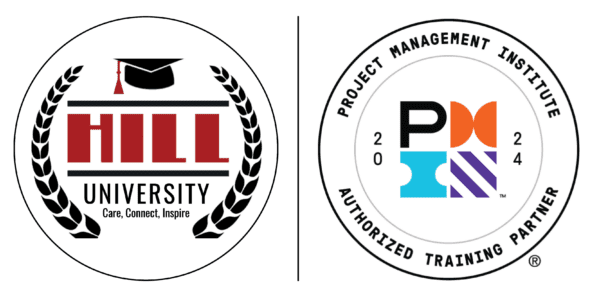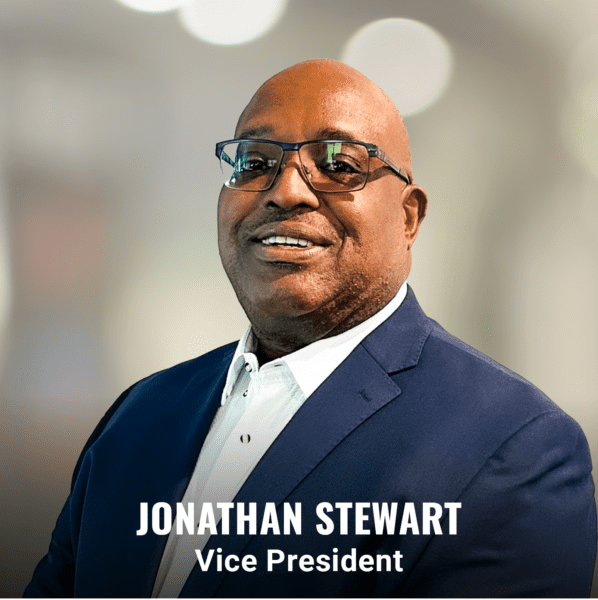
December 15, 2025 | Articles
Progressive Design-Build Powers Poulsbo’s New Fire Station 76

The Project Management Institute’s (PMI) Project Management Professional (PMP) certification is recognized around the world as an industry standard of project leadership and expertise. Many of Hill’s clients place a high value on PMP certification, and many require PMP or similar PMI certifications when soliciting for project and construction management support.

Recognizing the value PMP certification can add to our teams, Hill launched an internal PMP program in the fall of 2024. As a PMI Authorized Training Partner (ATP), Hill now offers comprehensive training programs for the PMP and other skill-based project management training, increasing the likelihood of exam success and offering new opportunities for employees to advance their careers.
Hill’s in-house subject matter experts Operations Director Mustafa Baghdadi and Senior Project Controls Ayham Daraghmeh provide the required 35 hours of training needed to sit for the PMP exam. To date, Mustafa and Ayham have conducted two training sessions for students from around the world.
Vice President Jonathan Stewart, who leads Hill’s global project controls practice, was one of the first candidates to utilize the PMP program, passing the PMP exam in December 2024. Jonathan explained that, with nearly three decades of management experience, he felt confident in his role and abilities, but understood the value of the PMP for Hill’s clients.
“For public sector clients, transparency is always a priority,” he said. “Many U.S. Federal clients even require the PMP or similar credential for their PMs in their proposals, for example.
“Having a PMP makes it easier for an evaluator to justify awarding us work and gives them an added confidence level we know what we’re doing. Essentially, it helps us help them by showing we can add value to our assignments.”
Jonathan noted that he completed his PMP preparation exclusively through Hill University, using only the training course and the online materials available. That said, he stressed that passing the exam requires more than just the 35 hours of instruction.
“The exam tests your understanding of the concepts explained in the PMBOK (Project Management Book of Knowledge) and other materials. You can’t simply memorize lists of processes and terms—you need to know how the best practices and lessons learned detailed by PMI apply to specific scenarios.”
While these scenarios don’t always align perfectly with the reality of work on-site, Jonathan noted that the PMP materials and ideas capture the increased emphasis on collaboration and innovation on major programs and projects many clients expect have come to expect from their PM teams.
“When I work with our clients I want to add value to their organization,” Jonathan says. “The PMP gives me additional perspectives on ways I can add that value. Stakeholder engagement, knowledge and communication management, building and evolving teams are all key concepts, and I think many of our clients appreciate what we can bring to the table in these areas. Passing the PMP exam demonstrates we’ve got a grasp of those concepts.”
Highlights of Hill’s program Jonathan cited were the quality of instruction provided by Mustafa, as well as the organizational capabilities of Vice President, Learning and Development Elizabeth Whalen, who led the development of the program.
Jonathan added, “Mustafa was very engaging and always available for sidebar conversations. We had some lively conversations, and I really appreciated how he took the time to challenge me on my assumptions and explain what the exam was all about.”
Going forward, Jonathan added he’d recommend potential candidates carefully consider their career paths, expectations, and need for the certification before signing up. “If you’re thinking of leading projects and are passionate about the concepts and ideas behind project management, then definitely this is the right certification for you. But if you see your role as more specialized or you’re new to project and construction management, then don’t go for the PMP just to put the letters on your bio. Don’t forget—there are plenty of other opportunities in Hill U to advance your career that might be a better fit for your specific goals and role.”
Importantly, PMI requires a substantial background and tenure in project management to even sit for the exam. While most Hill employees have this background, the PMP remains a focused credential for PM/CM leaders rather than, for example, the more entry-level Certified Associate in Project Management (CAPM) credential.
That said, Jonathan stressed that, for him, the PMP program was well worth the time and effort. “Honestly, I got more out of it than I expected. I’ve been doing this a long time, have a master’s degree in project management, and keep up on industry trends and insights, but this program was a great reminder there is always more to learn.”
 Vice President Jonathan Stewart, PMP, has more than 29 years of experience transforming operational departments and projects by driving efficiency, accountability, and cost controls. He helps to bridge the gap between business and technology with expertise in managing complex programs and multiple concurrent projects, as well as mitigating underperforming programs. He directs Hill’s project teams to develop high-quality solutions that solve business problems and provide tangible results for large public and private clients.
Vice President Jonathan Stewart, PMP, has more than 29 years of experience transforming operational departments and projects by driving efficiency, accountability, and cost controls. He helps to bridge the gap between business and technology with expertise in managing complex programs and multiple concurrent projects, as well as mitigating underperforming programs. He directs Hill’s project teams to develop high-quality solutions that solve business problems and provide tangible results for large public and private clients.
For more information on Hill’s PMI ATP program, contact Elizabeth Whalen at [email protected].
Share

December 15, 2025 | Articles
Progressive Design-Build Powers Poulsbo’s New Fire Station 76

December 8, 2025 | Articles

December 4, 2025 | Articles
Hill International Helps Deliver National Museum in Abu Dhabi

November 16, 2025 | Articles
Making Connections in San Jose: VTA’s Eastridge to BART Regional Connector

November 12, 2025 | Articles

November 3, 2025 | Articles
Hill International to Support High-Efficiency Gas Cogeneration Projects in Bucharest

October 12, 2025 | Articles
An Interview With Pakistan Country Manager Syeda Fakhar-un-Nisa

October 5, 2025 | Articles
More Than a Park: The Latest Updates on PennDOT’s I-95 CAP Project in Philadelphia

September 28, 2025 | Articles
New Business Development Director Julie Petrich’s Relationship-First Approach